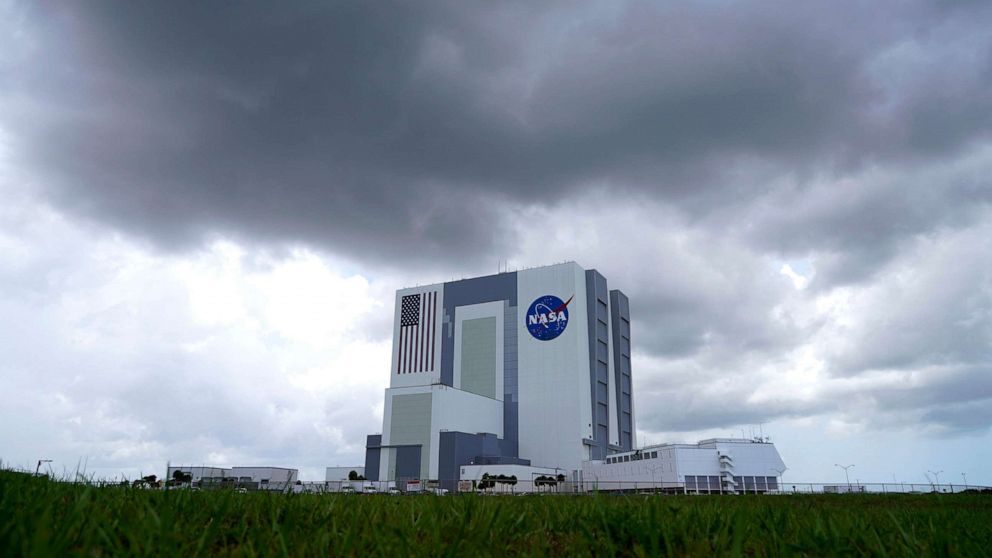Newsmatro

Witnessing the Triumphant Return and Successful Conclusion of NASA’s SpaceX Crew-6 Mission
MELBOURNE, Fla. — In a remarkable achievement, three NASA astronauts and a Russian cosmonaut safely splashed down off the coast of Jacksonville, Florida, marking the successful completion of NASA’s highly anticipated SpaceX Crew-6 mission in the early hours of Monday.
The re-entry spectacle mesmerized observers across the southeast United States as the Dragon Endeavour capsule gracefully soared across the night sky over the Gulf of Mexico and central northeast Florida between 12:05 a.m. and 12:17 a.m. ET. This awe-inspiring return was accompanied by mild yet striking sonic booms that resonated throughout the region, leaving a lasting impression on those lucky enough to witness the event.
Precisely at 12:17 a.m. ET, the Dragon Endeavour capsule achieved its final splashdown in the Atlantic Ocean, just off the coast of Jacksonville. This notable achievement marks the fourth successful space journey for the Dragon Endeavour, having been a crucial part of SpaceX’s prior missions, including Axiom-1, Crew-2, and Demo-2.
Splashdown Brings NASA’s SpaceX Crew-6 ISS Mission to a Close
Following the safe touchdown in the Atlantic Ocean, Commander Stephen Bowen of Crew-6 expressed his gratitude to SpaceX, stating, “Thanks, SpaceX. We deeply appreciate all the support extended to us throughout our entire journey, right from our initial training to the launch and throughout the mission. Your continuous updates on the vehicle’s status were invaluable. We are immensely grateful to all of you,” Bowen added. “This has been an incredible experience, greatly appreciated. I eagerly look forward to collaborating with you all once again.”
This remarkable conclusion to the extensive six-month science mission onboard the International Space Station began 17 hours before the anticipated splashdown. At 7:05 a.m. ET on Sunday, NASA’s Stephen Bowen and Woody Hoburg, together with the United Arab Emirates’ Sultan Alneyadi and Russian cosmonaut Andrey Fedyaev, sealed the hatch of their Dragon capsule and bid farewell to the space station.
After circling the Earth in orbit for most of the day, the Dragon Endeavour autonomously initiated the final deorbit burn at 11:24 p.m. ET, redirecting its course for the crew’s triumphant return to Earth.
As the Dragon capsule descended through the Earth’s atmosphere, it battled temperatures of up to 3,500 degrees, resulting in the formation of a protective plasma layer around it. This phase momentarily disrupted ground communication with the crew for approximately seven minutes, which is a regular part of the re-entry process.
Upon confirmation that no hazardous propellant leaks occurred, SpaceX teams approached the buoyant capsule, securing it and lifting it onto the deck of their recovery vessel, aptly named “Megan” in honor of NASA astronaut Megan McArthur.

Following thorough medical checkups onboard the vessel, the crew of four will board a helicopter for a brief journey back to Kennedy Space Center in Florida. Eventually, they will return to NASA’s Johnson Space Center in Texas, thus concluding a mission devoted to thousands of hours of scientific experiments and space station maintenance.
To date, SpaceX has successfully executed 11 human spaceflight missions, with eight of those missions directly supporting NASA’s Commercial Crew Program. The remaining three missions were carried out for private astronauts, including Inspiration4, Axiom-1, and Axiom-2.
Looking ahead, the upcoming launch from Florida is scheduled to be the United Launch Alliance Atlas V rocket. This vital national security mission, in collaboration with the U.S. Space Force and the National Reconnaissance Office, aims to deliver covert payloads to geostationary orbit. However, due to weather conditions caused by Hurricane Idalia, the NROL-107 mission was postponed and awaits a new launch date.
Additionally, SpaceX is preparing for a Falcon 9 launch, carrying a group of Starlink internet-beaming satellites, from Cape Canaveral Space Force Station. As of now, the specific liftoff date and time have yet to be announced by the company.